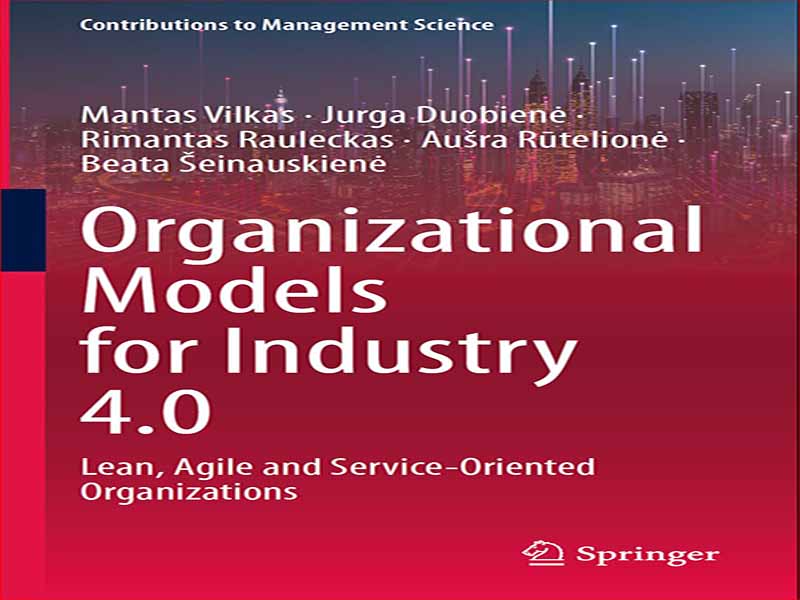- عنوان مجله: Organizational Models for Industry 4.0
- نویسنده: Mantas Vilkas
- حوزه: مدلهای سازمانی
- سال انتشار: 2022
- تعداد صفحه: 289
- زبان اصلی: انگلیسی
- نوع فایل: pdf
- حجم فایل: 6.0 مگابایت
در این فصل مقدماتی، از خوانندگان دعوت میکنیم تا از دریچهی نظریهی نئو نهادی به بخش تولید معمولی بنگرند. زمینه تولید جهانی به دلیل فناوریهای دیجیتال و اتصالات نوظهور در حال تغییر است. شرکت ها از شرکت هایی که به صورت دیجیتالی تبدیل شده اند تقلید می کنند. کشورها و مناطق، سیاستهای Industry 4.0 را برای جلوگیری از صنعتیزدایی و منابع مستقیم برای شرکتهای تولیدی که فناوریهای دیجیتال را اتخاذ میکنند، معرفی میکنند. “دیجیتالی شدن” مورد انتظار است. مشروعیت، افزایش تقاضا، استعدادها و سایر منابع حیاتی را اعطا می کند. در این فصل، ما پیشنهاد میکنیم که نوآوریهای دیجیتال، معرفی مدلهای کسبوکار سرویسمحور جدید را امکانپذیر میسازد و به پیشرفت قابلیتهایی که شرکتها بر اساس آن رقابت میکنند، کمک میکند. این دو روند – ظهور شرکتهای خدماتگرای جدید در رابطه با شرکتهای ناب و چابک مستقرتر و تأثیرات نوآوریهای دیجیتال بر عملکرد سازمانها – در جلو و مرکز کتاب قرار دارند. ما شکافهای تحقیق را پایهگذاری میکنیم و یک چارچوب نظری-تجربی ارائه میکنیم. ما نمونه تجربی موثر 500 شرکت را معرفی می کنیم که به عنوان بخشی از یک نظرسنجی تولید اروپایی جمع آوری شده است. در نهایت، ما استدلال میکنیم که مطالعه سازمانهای ناب، چابک و خدماتگرا در رابطه با یکدیگر میتواند به درک دقیقتری از استراتژیها و رفتار شرکتها در زمینه صنعت 4.0 منجر شود.
In this introductory chapter, we invite readers to look at the mundane manufacturing sector through the lens of neo-institutional theory. The global manufacturing field is being reshuffled due to emerging digital technologies and connectivity. Companies mimic digitally transformed ones. Countries and regions introduce Industry 4.0 policies to avoid deindustrialization and direct resources for manufacturing companies that adopt digital technologies. “Digitalization” becomes expected. It grants legitimacy, increased demand, talents, and other vital resources. In this chapter, we propose that digital innovations enable the introduction of new service-oriented business models and contribute to the advancement of the capabil- ities on which companies compete. These two trends—the emergence of new service-oriented firms in relation to more established lean and agile firms and the effects of digital innovations on the performance of organizations—are at the front and center of the book. We ground the research gaps and provide a theoretical– empirical framework. We introduce the effective empirical sample of 500 firms, which was collected as part of a European manufacturing survey. Finally, we argue that studying lean, agile, and service-oriented organizations in relation to each other could result in a more nuanced understanding of companies’ strategies and behavior in the context of Industry 4.0.
این کتاب را میتوانید از لینک زیر بصورت رایگان دانلود کنید:
Download: Organizational Models for Industry 4.0





































نظرات کاربران